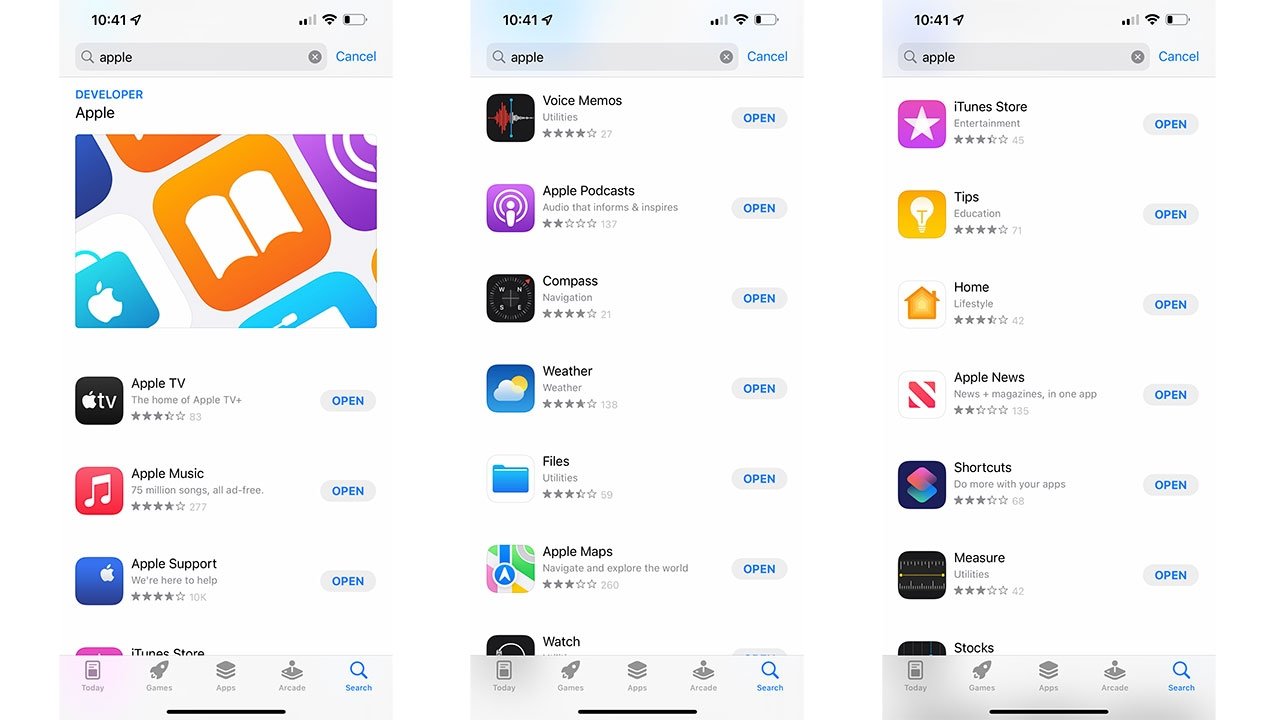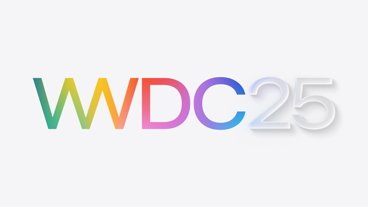After years of restricting reviews of its built-in apps, Apple with iOS 15 is allowing users to leave App Store ratings and comments on titles like Mail, Maps, Apple Music and the bemoaned Podcasts.
All Apple apps available on the App Store, including those that ship preinstalled on iPhone and iPad, are now showing star ratings and reviews in iOS 15, marking a major change in the company's stance on consumer feedback.
With the activation of reviews, users can leave personal appraisals of Apple's software, services and utilities as they would any app in the online marketplace. Apple Watch apps are also up for evaluation.
A relatively small number of users have assigned assessments to the company's apps thus far, with Apple Books, Apple TV, Calendar, Calculator, Compass, Files, Find My, Fitness, iHome, Tunes Store, Measure, Notes, Reminders, Shortcuts, Stocks, Tips, Translate, Voice Memos and Watch receiving less than 100 ratings each. Commonly used apps like Apple Maps, Mail, News, Podcasts and Weather net a few more entries.
Many apps are currently rated in the three- to four-star range, with apps that are consistently the source of bugs and user experience problems, such as Podcasts and News, knocked down to two stars. None of Apple's apps currently sit with one or five stars, though App Store Connect, Facetime, iTunes Remote and TestFlight enjoy average ratings above four stars.
Consumers were previously limited to rating Apple's optional — and at one time for-pay — software like the iWork suite, and those apps show tens of thousands of responses. Acquired apps like TestFlight and Shazam also carry over reviews gained when they were independent titles.
For now, most feedback is app-focused, but the new capability will undoubtedly welcome off-topic criticism of Apple as a corporation.
It is unclear when first-party app ratings went live, but 9to5Mac reported on the change on Wednesday.
The move comes as lawmakers and regulatory agencies scrutinize Apple's App Store business. Along with a close examination of first-party payment system requirements and restrictions against third-party app stores, critics have raised anti-competition concerns about Apple's strategy to ship hardware with preinstalled apps. Apple has for years allowed users to delete first party apps and in iOS 14 included options to change the system default browser, email app and search engine.
 AppleInsider Staff
AppleInsider Staff







-m.jpg)






 Wesley Hilliard
Wesley Hilliard
 Oliver Haslam
Oliver Haslam
 Christine McKee
Christine McKee
 Amber Neely
Amber Neely
 Andrew Orr
Andrew Orr

 Sponsored Content
Sponsored Content








7 Comments
Oh man, I'm off. About time I got the chance to let Apple know how their crappy decisions have turned Music into an infuriating hellhole.
And the rush of negative nellies, juveniles and wayward children to slam Apple has begun, right @crowley?
Keynote is an amazing tool. I use it almost every day – both professionally and privately – to visualize my ideas, plans, concepts etc. Hard to believe it’s entirely free, even add free. But there is one pixel that doesn’t look good in one of its menus, so I think I’ll rate it a 2.